None of these proposed solutions do what yours does - make sure that there are at least 2 letters in the acronym. Also, yours works on http://rubular.com/ . This is probably some issue with the regex implementation - to be fair, all of the matches that you got were valid acronyms. To fix this, you could either:
- Make sure there's a space or EOF succeeding your expression (
(?=\s|$) in ruby at least)
- Surround your regex with
^ and $ to make sure it catches the whole string. You'd have to split the whole string on spaces to get matches with this though.
I prefer the former solution - to do this you'd have:
\b([a-zA-Z]\.){2,}(?=\s|$)
Edit: I've realized this doesn't actually work with other punctuation in the string, and a couple of other edge cases. This is super ugly, but I think it should be good enough:
(?<=\s|^)((?:[a-zA-Z]\.){2,})(?=[[:punct:]]?(?:\s|$))
This assumes that you've got this [[:punct:]] character class, and allows for 0-1 punctuation marks after an acronym that won't be captured. I've also fixed it up so that there's a single capture group that gets the whole acronym. Check out validation at http://rubular.com/r/lmr0qERLDh
Bonus: you now get to make this super confusing to anyone reading it.
